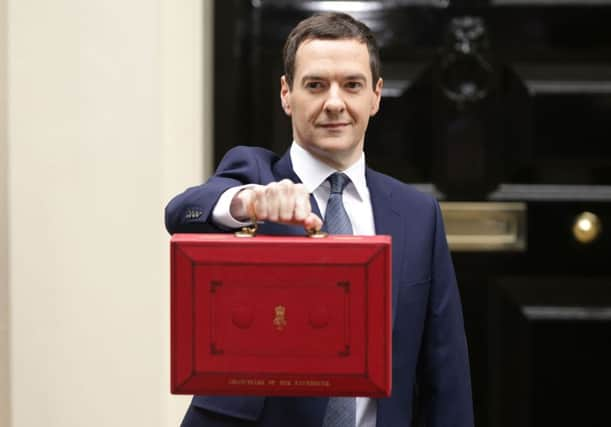BUDGET: The winners and losers...


Who were the winners?
According to the Chancellor, some six million people will be better off as a result of the National Living Wage (NLW) being introduced. Those aged over 25 will be entitled to at least £7.20 an hour from next April - and the level should top £9 by 2020.
By that time people earning NLW will be around £5,000 a year better off than if they were on the £6.50 minimum wage now.
Advertisement
Hide AdAdvertisement
Hide AdMr Osborne also claimed that 29 million people would pay less tax after he pushed up the personal allowance to £11,000 and the higher rate threshold to 43,000.
Wealthier families will benefit from estates worth up to £1 million being taken out of inheritance tax, and working parents are getting 30 hours of free childcare for three and four-year-olds.
But there must have been some losers, right?
The Chancellor wielded his axe on welfare, ruling that only the first two children will be eligible for tax credits. The income threshold for accessing tax credits and universal credit is being raised.
The system of grants for students from poorer backgrounds is being scrapped in favour of loans to save £1.6 billion.
Advertisement
Hide AdAdvertisement
Hide AdWorking-age benefits - including tax credits and local housing allowance, but not maternity pay and disability benefits - will be frozen for four years.
And public sector employees are facing another four years of 1% pay rises - except for MPs who are still on track to get 11% this year.
Non-doms are also likely to be unhappy - they will no longer be able to hold the tax status permanently.
What about the politics?
Mr Osborne wanted to set out a Conservative vision for helping working people.
Advertisement
Hide AdAdvertisement
Hide AdBut there were £12 billion of welfare cuts to find, and much of it had to come from tax credits - which top up the incomes of working people.
His solution, assisted by some wriggle room from higher than expected tax revenues, was to slow down the austerity process.
The personal allowance increase and his final flourish of introducing the NLW allow Mr Osborne to argue that he is taking action to give people a leg up, rather than just raiding their pockets.
A major advantage for the Chancellor is that Labour, in the midst of a protracted leadership contest, is not well placed to mount a strong attack.
Advertisement
Hide AdAdvertisement
Hide AdBut there is likely to be strong opposition from those affected once the curbs start to bite - and ministers have yet to spell out where departmental cuts will fall.
Has Mr Osborne boosted his own chances of succeeding David Cameron in the top job?
The initial reaction from the Tory benches was euphoric - especially from Work and Pensions Secretary Iain Duncan Smith, who was caught on camera doing some vigorous fist-pumping.
Bookies immediately installed Mr Osborne as the favourite to take over when Mr Cameron departs.
Advertisement
Hide AdAdvertisement
Hide AdBut it is often said that the difference between a successful chancellor and a failed chancellor is merely how long they stay in the job.
As he has found to his cost before, Budgets that look good initially can unravel under scrutiny - and there is still the danger of the UK economy being blown off course by turbulence in Europe and China.
Read more...